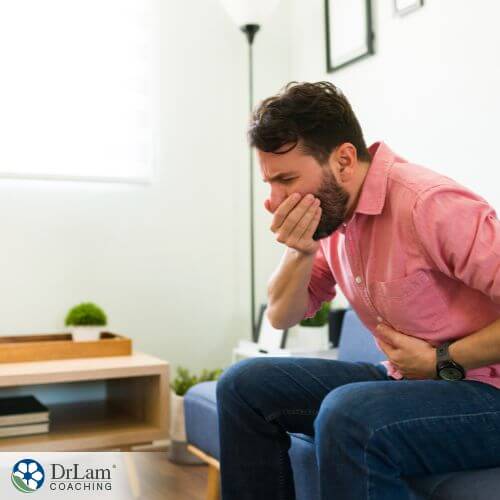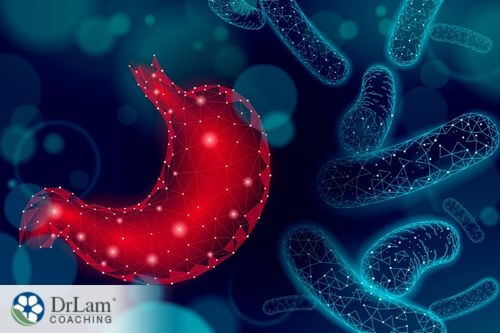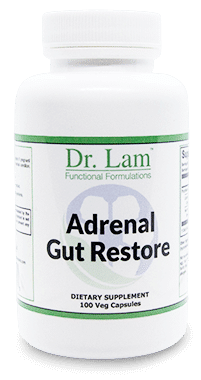 A stomach ulcer can come with a lot of pain and discomfort. These sores aren’t usually dangerous unless you ignore them, but they can cause a range of painful and distressing symptoms. Fortunately, they are fairly easy to address with conventional therapies. There are also things that you can do at home that will help soothe an ulcer or prevent it from occurring in the first place. So with that in mind, let’s take a look at what an ulcer is and what you can do about it.
A stomach ulcer can come with a lot of pain and discomfort. These sores aren’t usually dangerous unless you ignore them, but they can cause a range of painful and distressing symptoms. Fortunately, they are fairly easy to address with conventional therapies. There are also things that you can do at home that will help soothe an ulcer or prevent it from occurring in the first place. So with that in mind, let’s take a look at what an ulcer is and what you can do about it.
Stomach ulcers, otherwise known as gastric ulcers, are painful sores in the stomach lining. They occur when the layer of mucus that protects your stomach against digestive juices becomes thin. As a result, the digestive juices can then eat away at the stomach lining, causing a stomach ulcer.
Ulcers usually aren’t dangerous until they get worse, and the symptoms of an ulcer are usually mild. However, if your ulcer starts bleeding, then it can be life-threatening, so see a doctor immediately if this occurs.
Stomach ulcers are usually caused by:
If you have a stomach ulcer, your symptoms and their severity will depend on the severity of your ulcer. Here are some of the most common symptoms of this type of ulcer:
The pain and discomfort associated with ulcers will usually alleviate if you drink, eat, or take antacids.
It’s important that you see your doctor as soon as possible if you think that you have a stomach ulcer. They are best able to identify the problem and set up a plan to alleviate your symptoms and the ulcer. Here’s what your doctor will likely do:
Once a stomach ulcer has been identified, your doctor will talk to you about the conventional therapies that can eliminate it. The severity of your ulcer will determine what type of elimination strategies your doctor suggests. Here are some options:
If your ulcer is caused by infection like h pylori, your doctor may suggest antibiotics and proton pump inhibitors, which block acid production in the stomach. They may also suggest other strategies like:

Your doctor will also keep a close watch over your symptoms and may suggest a follow-up endoscopy to check on the healing process.
It’s fairly rare for an ulcer to require surgery, but it does happen. Surgery usually involves removing the entire ulcer. However, your doctor may also take other steps to help the site heal or prevent further ulcers such as patching a piece of healthy tissue over the ulcer site or cutting off the stomach nerve supply to reduce stomach acid production.
Surgery is only performed if your ulcer:
Preventing a stomach ulcer is much more effective than trying to get rid of it. Here are some strategies that might help with that:
If you have an ulcer, then there are things you can do to help reduce your symptoms and boost the health of your stomach to help with healing. Here are some ideas to try:
An unhealthy diet doesn’t cause ulcers, but your body needs lots of nutrients to heal and function properly. So make sure that you’re eating a diet that’s rich in fruits, vegetables, organic lean proteins, and healthy fats.
There are also certain foods that can help eliminate the bacteria that causes ulcers or boost healthy bacteria levels such as:
Foods that are very sour or spicy may cause acid reflux, which will worsen your symptoms, so try to avoid them if you have an ulcer. Making a flax seed slimy soup can actually help coat your gut to prevent ulcers too.
Certain supplements will help reduce the impact of the bacteria that causes ulcers. However, these supplements should only be used to complement a healthy diet, not to make up for a poor diet. You should also talk to your doctor before taking any supplements to ensure that they’re right for your body and its overall condition.
Various natural supplements can offer supportive benefits in soothing stomach ulcers. Mastic gum, derived from the sap of the mastic tree, has been used historically and has properties that may help reduce stomach inflammation and fight against H. pylori bacteria, a common cause of ulcers. Aloe vera, known for its healing properties, can provide a soothing effect on the stomach lining, potentially aiding in the healing of ulcers. Licorice, particularly in its deglycyrrhizinated form (DGL), can also help by coating the stomach lining and promoting mucus production, which protects against acid. Glutamine, an amino acid, plays a role in intestinal health by supporting the regeneration and repair of the gut lining, thus potentially aiding in ulcer healing. Lastly, probiotics can contribute to gut health by balancing the gastrointestinal flora, which is crucial for overall digestive health and can indirectly support the healing of stomach ulcers. It's important to note that while these supplements can provide support, they should be used as part of a broader treatment plan under the guidance of a healthcare professional, especially for conditions like stomach ulcers.
A stomach ulcer will severely impact your health and your stress levels. The pain, discomfort, and disruption to your gut functions may only worsen the stress you’re already under, causing adrenal fatigue. Adrenal fatigue can occur when the NeuroEndoMetabolic (NEM) stress response is active for long periods. This stress response causes the release of cortisol from the adrenal glands. The high cortisol levels then affect the body’s circuits, six sets of related organ systems, preparing each of them to survive the cause of the stress.
But the NEM stress response isn’t meant to be active for long periods. When it is, the adrenal glands can start to fatigue and malfunction. And the body’s circuits can also become dysfunctional because they’re kept in their stressed state for too long. This is a condition that’s known as Adrenal Fatigue Syndrome (AFS).
The issues caused by an ulcer in the stomach can bring on or worsen AFS. It will also directly impact the health and functioning of the Inflammation Circuit.
 The Inflammation Circuit is responsible for helping protect you against infections and other invaders. It consists of the gut, the microbiome, and the immune system and each of these components have their own tasks do in order to protect you. When you have AFS and your cortisol levels are high, the immune system goes into overdrive, causing chronic inflammation. Digestion slows down because it usually isn’t needed for imediate survival, which has an impact on the health of the gut and on the microbiome.
The Inflammation Circuit is responsible for helping protect you against infections and other invaders. It consists of the gut, the microbiome, and the immune system and each of these components have their own tasks do in order to protect you. When you have AFS and your cortisol levels are high, the immune system goes into overdrive, causing chronic inflammation. Digestion slows down because it usually isn’t needed for imediate survival, which has an impact on the health of the gut and on the microbiome.
As stress continutes, these components become more dysfunctional, resulting in a range of health problems from chronic inflammation to digestive problems, ongoing infections, and even food sensitivities. And all of these issues could worsen ulcer symptoms as well.
A stomach ulcer can force the immune system to create more inflammation and create leaks in your gut through which food particles can escape back into your bloodstream. It may also impact your digestion and elimination and cause further imbalances in the microbiome, or the balance of bacteria in your body.
AFS can also have a role in the development of stomach ulcers. The symptoms that you experience because of this condition may cause you to take medications more regularly than usual, resulting in a gut ulcer. The bacterial imbalances you experience because of AFS may also cause the overgrowth of H. pylori, the bacteria that are responsible for the development of ulcers in the stomach.
For these reasons, it’s vitally important that you see a doctor if you think you have an ulcer in your stomach. Likewise, if you have AFS, you should see a doctor who is aware of AFS.
If you’ve ever experienced the pain and discomfort of a stomach ulcer, then you probably know that they shouldn’t be ignored. By seeking out help early, you can avoid a lot of pain and discomfort, as well as the more serious consequences that can occur if you ignore the issue.
If you think that you have an ulcer in your stomach, then here’s what to do:
For more help with ulcers or any other issues with your gut or stomach, talk to our team at +1 (626) 571-1234 or click here.

Soothe the Gut with Adrenal Gut Restore
Overuse of certain medications or bacteria are the most common causes of a stomach ulcer. Both of these can make the stomach lining thinner, allowing digestive juices to eat away at the tissue. This causes a painful sore that can be dangerous if you ignore it.